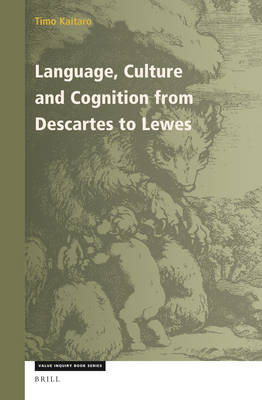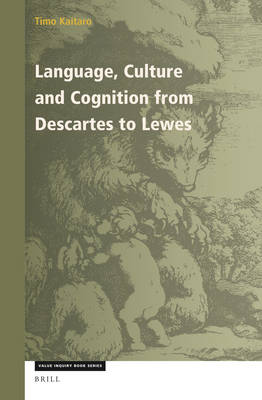
- Afhalen na 1 uur in een winkel met voorraad
- Gratis thuislevering in België vanaf € 30
- Ruim aanbod met 7 miljoen producten
- Afhalen na 1 uur in een winkel met voorraad
- Gratis thuislevering in België vanaf € 30
- Ruim aanbod met 7 miljoen producten
Zoeken
Omschrijving
This volume describes how the significance of language and culture in forming human cognition has been understood from the mid-sixteenth century to the mid-nineteenth century. It discusses thinkers who realized that the human mind--and brain--is in fact a cultural artefact and that language is not merely a means to communicate thoughts, but also to form them in the first place. It presents a novel perspective on the history of philosophy in which the narrative is no longer centered on the question of whether knowledge results from experience or reason, but whether experience and reason are in fact possible without language.
Specificaties
Betrokkenen
- Auteur(s):
- Uitgeverij:
Inhoud
- Aantal bladzijden:
- 340
- Taal:
- Engels
- Reeks:
- Reeksnummer:
- nr. 375
Eigenschappen
- Productcode (EAN):
- 9789004507234
- Verschijningsdatum:
- 15/03/2022
- Uitvoering:
- Hardcover
- Formaat:
- Genaaid
- Afmetingen:
- 155 mm x 235 mm
- Gewicht:
- 689 g

Alleen bij Standaard Boekhandel
+ 573 punten op je klantenkaart van Standaard Boekhandel
Beoordelingen
We publiceren alleen reviews die voldoen aan de voorwaarden voor reviews. Bekijk onze voorwaarden voor reviews.








